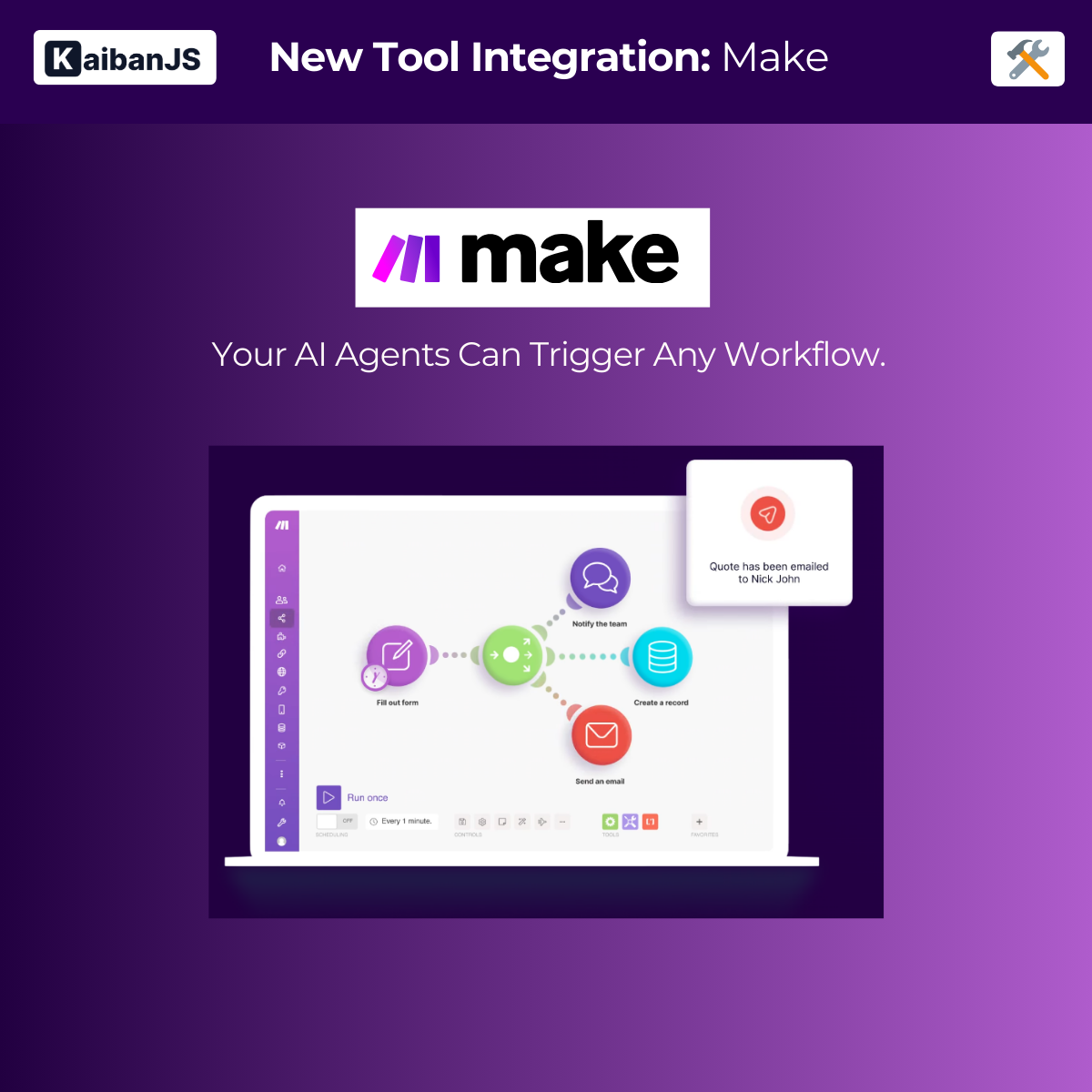Make Webhook Tool
Description
Make (formerly Integromat) is a powerful automation platform that connects thousands of apps and services. The Make Webhook tool enables AI agents to trigger scenarios and automate tasks across various applications using Make's webhook functionality.

Enhance your agents with:
- Multi-App Integration: Connect with thousands of apps and services
- Scenario Automation: Trigger complex scenarios with a single webhook
- Structured Data: Send formatted data using Zod schema validation
- Secure Communication: Built-in security features and environment variable support
Installation
First, install the KaibanJS tools package:
npm install @kaibanjs/tools
Webhook URL
Before using the tool, ensure that you have created a webhook trigger in Make and obtained the webhook URL. This URL will be used to send data to your scenario.
Example
Here's how to use the Make Webhook tool to send data and trigger automations:
import { MakeWebhook } from '@kaibanjs/tools';
import { z } from 'zod';
const webhookTool = new MakeWebhook({
url: 'YOUR_MAKE_WEBHOOK_URL',
schema: z.object({
event: z.string().describe('Event type'),
data: z.object({
id: z.string(),
timestamp: z.string(),
details: z.record(z.any())
}).describe('Event data'),
source: z.string().describe('Event source')
})
});
const automationAgent = new Agent({
name: 'AutoBot',
role: 'Automation Manager',
goal: 'Trigger and manage automated workflows across various systems',
background: 'System Integration Specialist',
tools: [webhookTool]
});
Parameters
urlRequired. The webhook URL from your Make trigger. Store this in an environment variable for security.schemaRequired. A Zod schema that defines the structure of the data you'll send to Make.
Common Use Cases
-
Data Processing
- Transform data formats
- Filter and route information
- Aggregate multiple sources
-
System Integration
- Connect applications
- Sync data between systems
- Automate workflows
-
Event Processing
- Handle real-time events
- Process webhooks
- Trigger automated responses
Best Practices
-
Security
- Store webhook URLs in environment variables
- Use HTTPS endpoints only
- Never expose URLs in client-side code
-
Data Validation
- Define clear schemas
- Validate input types
- Handle edge cases
-
Error Handling
- Implement proper error handling
- Monitor webhook responses
- Handle rate limits
Is there something unclear or quirky in the docs? Maybe you have a suggestion or spotted an issue? Help us refine and enhance our documentation by submitting an issue on GitHub. We're all ears!